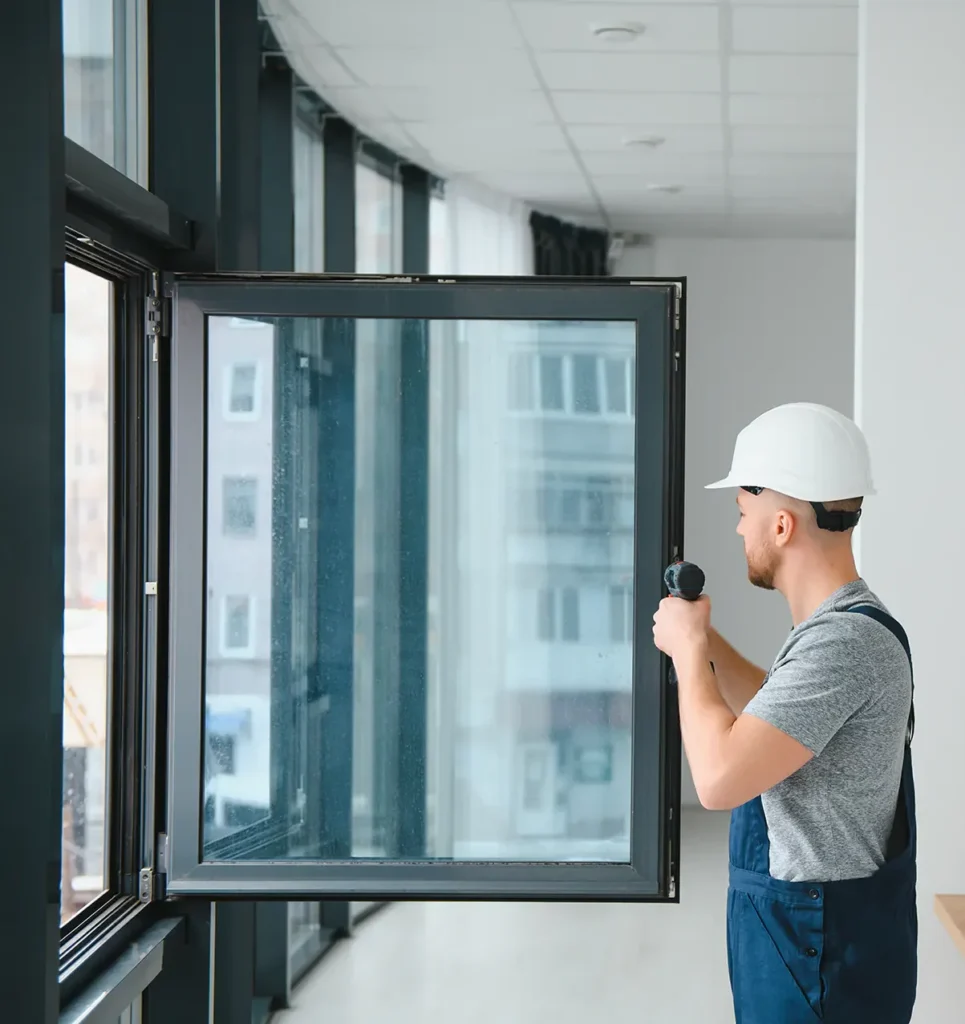
Windows are an essential part of any home, providing natural light, ventilation, and a connection to the outside world. However, over time, windows can deteriorate, impacting the comfort, energy efficiency, and overall appearance of your home. Recognizing the signs that your windows need to be replaced can help you address issues before they become significant problems. This blog will outline the top five signs that indicate it’s time to consider replacing your home’s glass windows.
Drafts and Poor Insulation
Identifying Drafts Around Windows
One of the most common signs that your windows need replacement is the presence of drafts. If you feel cold air seeping in around the edges of your windows, it’s a clear indication that they are not sealing properly. Drafts can occur due to worn-out weatherstripping, gaps, or cracks in the window frame. To check for drafts, you can hold a lit candle or incense stick near the window edges; if the flame flickers or the smoke moves erratically, it’s a sign of an air leak.
Impact on Energy Efficiency
Drafty windows can significantly impact your home’s energy efficiency. When windows do not insulate properly, your heating and cooling systems must work harder to maintain a comfortable indoor temperature. This results in higher energy bills and unnecessary strain on your HVAC system. Replacing old, drafty windows with energy-efficient ones can help reduce energy consumption and lower your utility costs.
Visible Damage or Decay
Cracks, Chips, and Broken Seals
Visible damage to your windows is a clear sign that replacement is needed. Cracks or chips in the glass can compromise the window’s integrity, making it less effective at insulating your home and more susceptible to further damage. Broken seals between double or triple-pane windows can lead to condensation buildup, reducing the window’s clarity and insulating properties.
Signs of Frame Deterioration
In addition to damage to the glass itself, you should inspect the window frames for signs of decay. Wooden frames, in particular, are prone to rot, mold, and warping over time, especially if they are exposed to moisture. Vinyl and aluminum frames can also deteriorate, showing signs of corrosion or warping. Deteriorating frames can lead to structural issues and reduce the overall performance of your windows.
Difficulty Opening and Closing Windows
Causes of Operational Issues
Windows that are difficult to open or close are not only frustrating but also indicate underlying problems. Several factors can cause operational issues, including warped frames, swollen wood due to moisture, or broken hardware components. If your windows stick, jam, or require excessive force to operate, it’s a sign that they are no longer functioning as they should.
Safety and Convenience Concerns
Windows that do not open or close properly can pose safety risks. In an emergency, such as a fire, you need to be able to open windows quickly to exit the home or allow fresh air to enter. Additionally, windows that do not lock securely can compromise the security of your home. Ensuring that your windows operate smoothly and lock properly is crucial for the safety and convenience of your household.
Condensation Between Glass Panes
Understanding Condensation and Its Causes
Condensation between the glass panes of double or triple-pane windows is a sign that the window seal has failed. This failure allows moisture to enter the space between the panes, leading to foggy or hazy windows. Condensation can occur for several reasons, including age-related wear and tear, improper installation, or exposure to extreme weather conditions.
Effects on Window Performance
When condensation builds up between glass panes, it not only affects the appearance of your windows but also their performance. The insulating gas (usually argon or krypton) that is placed between panes to improve energy efficiency can escape, reducing the window’s ability to insulate your home. Replacing windows with failed seals can restore clarity and improve the overall energy efficiency of your home.
Increased Noise Levels
How Windows Affect Sound Insulation
Effective windows help to insulate your home from external noise, creating a peaceful and quiet indoor environment. If you start noticing increased noise levels from outside, it could be a sign that your windows are no longer providing adequate sound insulation. This can happen due to thinning glass, gaps in the window frame, or deteriorating seals.
Indicators of Failing Soundproofing
If you hear more noise from traffic, neighbors, or other external sources, it may indicate that your windows are no longer functioning properly as sound barriers. Upgrading to windows with better soundproofing qualities, such as laminated glass or double-glazed units, can significantly reduce noise pollution and enhance your home’s comfort.
Conclusion
Recognizing the signs that your home needs glass window replacement can help you address issues before they escalate into major problems. Drafts, visible damage, operational difficulties, condensation between panes, and increased noise levels are all indicators that it’s time to consider new windows. Investing in high-quality, professionally installed replacement windows can improve your home’s energy efficiency, safety, and overall comfort. If you notice any of these signs, it’s advisable to consult with a professional window installer to assess your needs and explore the best options for your home. Replacing your windows can lead to long-term savings, increased property value, and a more pleasant living environment.
